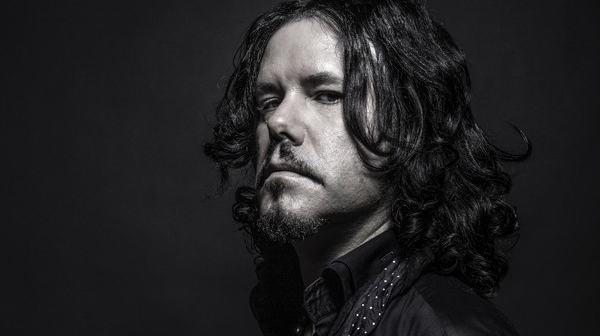“It’s quite funny,” he chuckles. “I’m doing a warm-up show down in Margaret River before the tour, and just before we started this interview, I went across the street to grab a six-pack for the drive. I’m literally standing in the middle of the street waiting to cross, and this car slows down. A guy I’ve never met before sticks his head out the window and goes, ‘Mr Martin? I say, ‘Yeah?’ And he cranks his stereo, and he was listening to the song, Ocean at the End. And the guy’s like, ‘This is so freaky,’ while all of these cars are honking their horns behind him and trying to swerve around. And I guess that’s one way to answer how that album sits with me today. For a band that had been away for all that time, for us to have the record still connecting with people as they’re driving down the street, I couldn’t be prouder.”
Having released their first self-titled album back in 1991, the sound of Martin and The Tea Party is a difficult beast to categorise. Their affiliation with Middle Eastern music is well-documented, but over the years, the band has embraced a host of different genres and instrumentation. In turn, they’ve found themselves as unexpected avatars of rock-fusion, inspiring others just as they themselves move off into fresh directions.
“Definitely as far as our artistry is concerned, it’s a matter of what the three of us are exposed to, and we all bring to the table many different things. For instance, when Edges of Twilight was created, there had been a tour of the Middle East. Ever since I was a little boy, I’d been fascinated with music from that part of the world; it was something that resonated with me for some strange reason even at 11 years old. So that’s always been a part of our musical psyche. It’s funny, when we first came out in ‘93 we got these comparisons to Led Zeppelin and The Tourists, acts like that. But now things have come full circle, and a lot of bands these days who attempt anything Middle Eastern immediately get compared to The Tea Party,” he laughs. “Which is quite flattering, I guess, to see how in the consciousness of the critical press we’re that well-known.”
Of particular note are Martin’s reflections and investigations into occult studies. His forays into esoteric spirituality infuse much of his professional and creative life, which is arguably all the more remarkable given how often such philosophical engagements are dismissed by contemporary voices.
“The spiritual belief in Thelema, which is something that [Aleister] Crowley founded back in the early 1900’s, is a big part of my life, especially here in Perth. Our business manager is an artist himself but is known for being the number one curator of occult fine art, so here on the walls of my studio surrounding me are original Crowley paintings, paintings by James Gleeson, Kim Nelson, artists like that. So it’s very much a temple to the esoteric, which is always going to be part and parcel to the music that I write. Even though what I do is mostly rock’n’roll, it’s rock with a lot of layers underneath it.”
It’s fascinating, yet a school of thought that remains largely unknown to many people. To hear a term like ‘occult’ brings with it all manner of baggage, most of which has little to do with the real-world application of beliefs like Thelema. For Martin, in a world so intent on the next piece of technology, the next glamour, it is something grounding that he can draw from every day.
“The purpose of ritual and meditation in those schools of thought are what help you swim through the mire of technology, through the overwhelming claustrophobia of so much information out there. It makes you able to return to the self, before you start to fragment. I’m not a preacher, but this type of path is something that you have to discover for yourself, and it has to work for you. If it doesn’t, it doesn’t. But certainly it has for me. Thelema allows me to keep everything in order. It’s almost like a spiritual filing cabinet so that nothing overwhelms me. People think, ‘Hey, Jeff Martin is into black magic,’ and all that, which couldn’t be further from the truth. It’s all about positivity, and is ultimately about me being a loving human being with empathy and compassion, all of those beautiful things that a lot of us forget about.”
BY ADAM NORRIS

